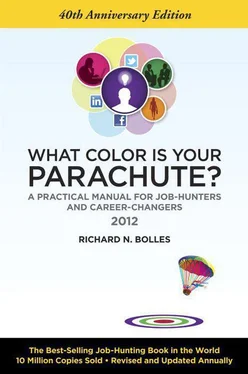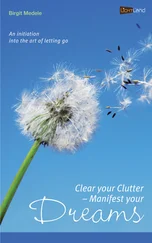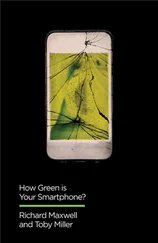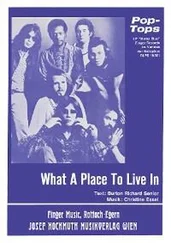Dick Bolles
RNB25@aol.com
www.jobhuntersbible.com
GRAMMAR AND LANGUAGE NOTE
I want to explain four points of grammar, in this book of mine: pronouns, commas, italics, and spelling. My unorthodox use of them invariably offends unemployed English teachers so much that instead of finishing the exercises, they immediately write to apply for a job as my editor.
To save us unnecessary correspondence, let me explain. Throughout this book, I often use the apparently plural pronouns “they,” “them,” and “their” after singular antecedents—such as, “You must approach someone for a job and tell them what you can do.” This sounds strange and even wrong to those who know English well. To be sure, we all know there is another pronoun—”you”—that may be either singular or plural, but few of us realize that the pronouns “they,” “them,” and “their” were also once treated as both plural and singular in the English language. This changed, at a time in English history when agreement in number became more important than agreement as to sexual gender . Today, however, our priorities have shifted once again. Now, the distinguishing of sexual gender is considered by many to be more important than agreement in number .
The common artifices used for this new priority, such as “s/he,” or “he and she,” are—to my mind—tortured and inelegant. Casey Miller and Kate Swift, in their classic, The Handbook of Nonsexist Writing , agree, and argue that it is time to bring back the earlier usage of “they,” “them,” and “their” as both singular and plural—just as “you” is/are. They further argue that this return to the earlier historical usage has already become quite common out on the street —witness a typical sign by the ocean that reads, “Anyone using this beach after 5 p.m. does so at their own risk.” I have followed Casey and Kate’s wise recommendations in all of this.
As for my commas, they are deliberately used according to my own rules—rather than according to the rules of historic grammar (which I did learn—I hastily add, to reassure my old Harvard professors, who despaired of me weekly, during English class). In spite of those rules, I follow my own, which are: to write conversationally, and put in a comma wherever I would normally stop for a breath, were I speaking the same line.
The same conversational rule applies to my use of italics . I use italics wherever, were I speaking the sentence, I would emphasize that word or phrase. I also use italics where there is a digression of thought, and I want to maintain the main flow of the sentence. All in all, I write as I speak. Hence the dashes (—) to indicate a break in my thought.
Finally, some of my spelling (and capitalization) is weird . (You say “weird”; I say “playful.”) I happen to like writing it “e-mail,” for example, instead of “email.” Most of the time. Fortunately, since this is my own book, I get to play by my own peculiar interpretations; I’m just grateful that ten million readers have gone along . Nothing delights a child (at heart) more, than being allowed to play.
P.S. Speaking of “playful,” over the last forty years a few critics ( very few) have claimed that Parachute is not serious enough (they object to the cartoons, here, which poke fun at almost everything ). On the other hand, a few have complained that the book is too serious, and too complicated in its vocabulary and grammar for anyone except a college graduate. Two readers, however, have written me with a different view.
The first one, from England, said there is an index that analyzes a book to tell you what grade in school you must have finished, in order to be able to understand it. My book’s index, he said, turned out to be 6.1, which means you need only have finished sixth grade in a U.S. school in order to understand it.
Here in the U.S., a college instructor came up with a similar finding. He phoned me to tell me that my book was rejected by the authorities as a proposed text for the college course he was teaching, because (they said) the book’s language/grammar was not up to college level. “What level was it?” I asked. “Well,” he replied, “when they analyzed it, it turned out to be written on an eighth grade level.”
Sixth or eighth grade—that seems just about right to me. Why make job-hunting complicated, when it can be expressed so simply even a child could understand it?
R.N.B.
INTRODUCTION

It was the best of times,
It was the worst of times,
It was the age of wisdom,
It was the age of foolishness,
It was the epoch of belief,
It was the epoch of incredulity,
It was the season of light,
It was the season of darkness,
It was the spring of hope,
It was the winter of despair,
We had everything before us,
We had nothing before us,
We were all going direct to heaven,
We were all going direct the other way…
CHARLES DICKENS (1812–1870)
A TALE OF TWO CITIES
CHAPTER 1
How to Find Hope
If we had such a thing as a national bumper-sticker for our cars, the bumper-sticker of the year would be: “I’m out of work, I can’t find a job, and I’ve tried everything.”
Of course not everyone would display it; some 139,000,000 people in the U.S. have jobs, after all. But some 15,000,000 do not. And 6,000,000 of them would display it for longer than twenty-seven months. That’s how many have currently been out of work that long. Just here in the U.S. Beyond these shores, well, tragically high unemployment is a worldwide problem, as we have seen throughout the Middle East this year, and other restless nations of the world.
Everywhere we go, these days, we hear this cry: “I’ve been out of work forever, and I can’t find a job, no matter how hard I try.” And we do try hard. Often in vain. We are thrown out of work, we go looking for work the way we always used to, but this time we come up empty. This is a brand new experience for many of us. And one that we didn’t see coming. Nothing works. Unemployment drags on.
This shakes us emotionally to our core, and often leads to a plunge in our self-esteem. Those twins, depression and despair, frequently follow hard on its heels. Life feels like it is never going to get any better. This feels like forever . (I know. Like any normal American, I’ve been thrown out of work twice in my life. It was not fun.)
What do we need?
Well, we desperately need a job. Of course.
But more than that, while we are out of work we desperately, desperately, need Hope.
Experts have discovered, over the years, what is the key to Hope. And it is just this: Hope requires that, in every situation, we have at least two alternatives.
Not just one way to describe ourselves, but two ways, at least.
Not just one way to hunt for a job, but two ways, at least.
Not just one kind of job to hunt for, but two kinds of jobs, at least.
Not just one size company to go after, but two sizes, at least.
Not just one place we really would like to work at, but two places, at least.
And so on. And so forth.
In order to have Hope while you are out of work, you have to make sure that in every situation you find yourself, you’re not putting all your eggs in just one basket.
Читать дальше













